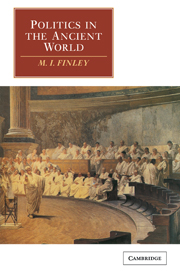Summary
A people is not just a political entity, as was once hoped. Parties, organized campaigns, and leaders make up the reality, if not the promise, of electoral regimes … Elections are rituals in function and in form, and the choice of parts is fairly limited. The pretensions therefore are standardized, and the conventions of expressing them are equally predictable. The voters' expectations are not, as a rule, particularly great, and their tolerance for eccentricities and departures from the script is low.
That quotation from Judith Shklar, chosen almost at random, represents a common evaluation of contemporary democracy, though with the overtones of what its critics have come to call the élitist school. I began with it not because I am here concerned either with its descriptive accuracy or with the élitist arguments approving public apathy – I have discussed that elsewhere – but because a preliminary warning seems essential. The equation, democracy = electoral regime, is so strongly entrenched in our culture that a conscious effort to put it wholly aside is required in the study of ancient politics. ‘Electoral regime’ is a completely wrong label for Greece, an inadequate one for Rome. There were elections, and they had their element of ritual, their pretensions and conventions, their apathetic voters. But there were also assemblies with the (at least formal) power of final decision on issues. There was, in short, a measure of genuine popular participation.
- Type
- Chapter
- Information
- Politics in the Ancient World , pp. 70 - 96Publisher: Cambridge University PressPrint publication year: 1983



